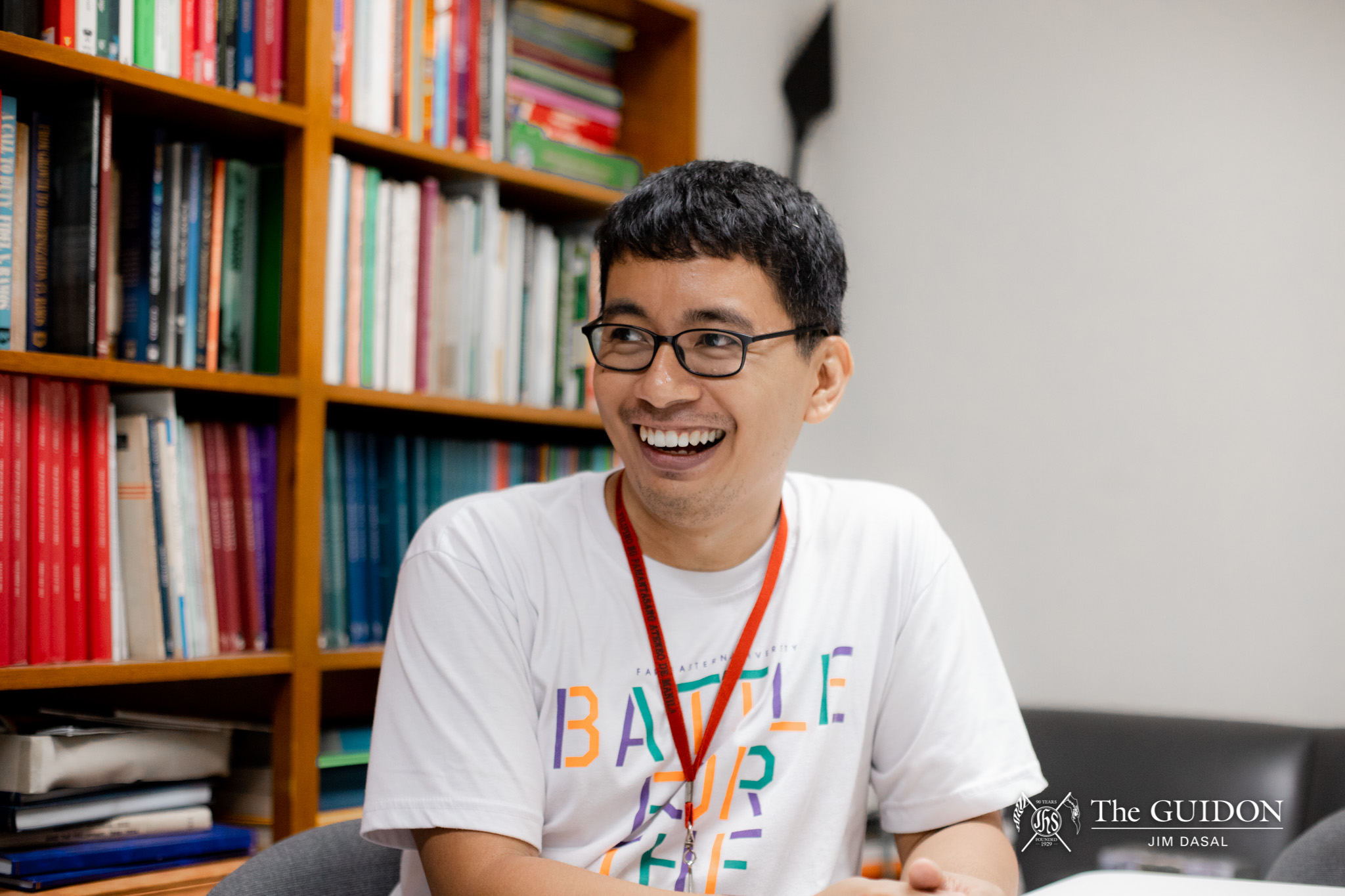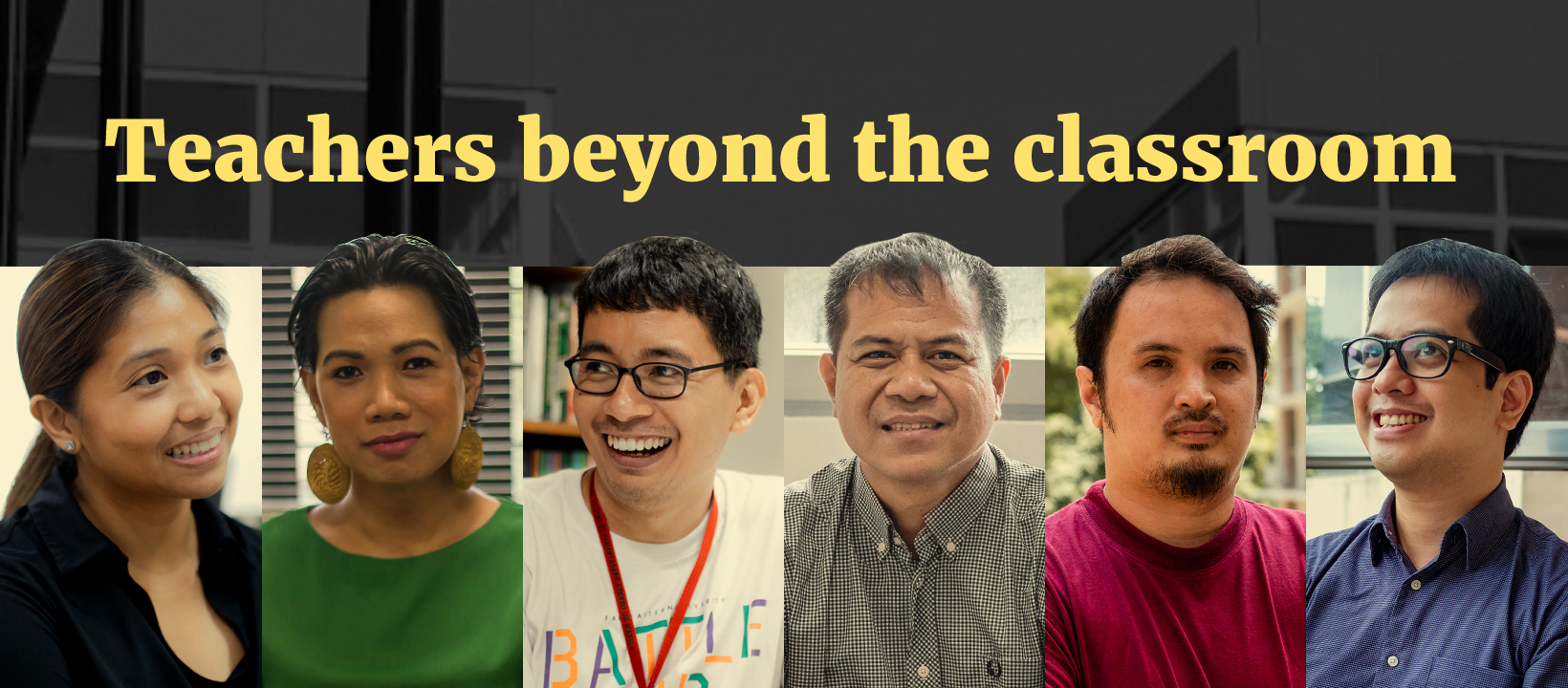
Photo by Jim Dasal
A true champion of the truth, Michael Pante, PhD (Department of History) advocates against historical revisionism in light of events such as the burial of Ferdinand Marcos in the Libingan ng mga Bayani. Previously, he was a member of Tanggol Wika, an organization that was formed after the protest against the Commission on Higher Education (CHED) for the removal of Filipino from college curricula. He is currently affiliated with Tanggol Kasaysayan and the Alliance of Concerned Teachers: Groups that drive discourse on issues from teachers’ welfare to the reinstatement of history in the high school curriculum.
When I was in college, I was a part of a student paper, Matanglawin, and it was there where I learned [about] activism, social issues, and politics. […] I learned that journalism is not a neutral thing. The very moment you choose your topic, there’s already politics involved there. I was exposed to that in college.
It’s not a minor thing to be [busy] in the weekends rather than spending it with your family. […] In a lot of cases, I have to sacrifice that, and maybe rather than go hang out with friends, join a particular demonstration or mobilization. I had to learn to balance my time so that I’d be able to maintain my engagement with my organization.
Tanggol Wika emerged as a result of that clamor to scrap that curricular change and reinstate Filipino as a part of the mandated CHED curriculum. The main fear of Filipino teachers at the tertiary level was that it would signal the end of Filipino. What would happen is that, rather than have all schools require it for all their students, now it’s the prerogative of the school whether they should have it or not.
Actually, I’m more active with Tanggol Kasaysayan, given my profession [since] I’m part of the Department of History. Tanggol Kasaysayan is a much younger organization. It was launched in PUP [Polytechnic University of the Philippines] in 2016. It came about also due to current events, so if Tanggol Wika was because of CHED changes, for Tanggol Kasaysayan, it’s a response to historical revisionism: With the whole [Marcos burial at the] Libingan ng mga Bayani, Bongbong Marcos’ [claim to] winning the Vice Presidency, and other similar events.
Inside the classroom, I try to be as democratic as possible. I don’t impose any kind of ideology or belief. […] Senator Bato dela Rosa said that teachers are brainwashing their students. [Contrary to popular belief,] it’s far from reality. Because at the end of the day, the students will believe what they want to believe. They are already adults. At the college level, kahit ano pang sabihin ko diyan, alam niyo na kung anong gusto niyong gawin (no matter what I tell you, you already know what you want to do). I can only show you another angle or side to the story.
I’m not [keen] on giving [Ateneans] an inspirational message. I think I’d do it via the actual content of my history classes: Telling them about the lives of José Rizal, telling them about the lives of Edgar Jopson. […] Their lives are a clear message for [the students]. I don’t have to promote it to them explicitly. If [the students] are [to] simply read their biographies and look at the decisions [Rizal and Jopson] made, there’d be nothing to add to that.






